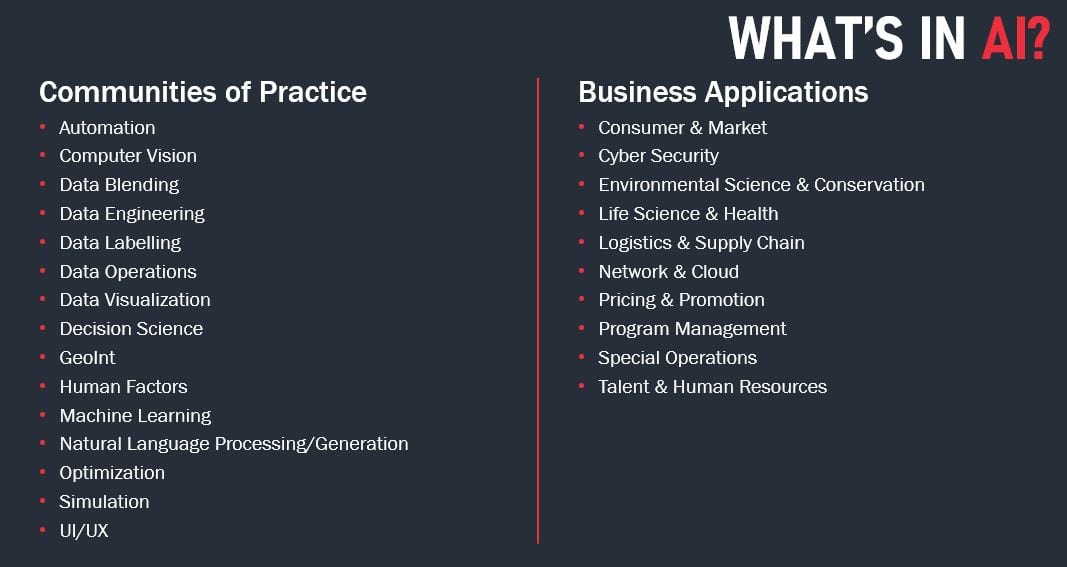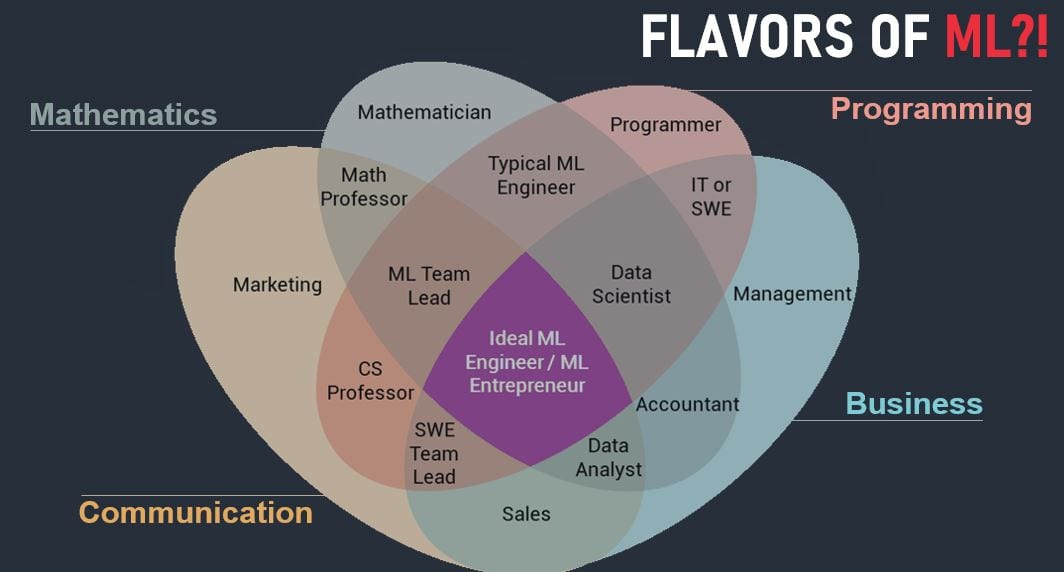Blue Collar AI
The Business and Industry Leadership Team (BILT) model forms the cornerstone of all of the National Convergence Technology Center’s (CTC) work. A big part of the BILT model involves encouraging your employers to share their expert perspectives on current and future workplace trends. At a recent national BILT meeting, Aaron Burciaga – Vice President of Analytics and Artificial Intelligence for ECS – did just that. He delivered a short presentation on the important role two-year technical programs play in providing in-demand career paths for data science technicians. Aaron believes industry needs to stop thinking that only post-grad college degrees can do this work.
You can watch his presentation here, below are some key highlights.
- While people often think of advanced concepts like “neural networks” when they think of AI, there remains plenty of positions available for technicians. There will always be PhDs and master’s degrees leading the AI field, but for every CIO there is an “army of other kinds of data science specialists. Think of your local high school: there’s one superintendent but then how many bus drivers and cafeteria workers under that administrator? It’s that sort of blue-collar support that makes the entire ecosystem run.
- Aaron divided AI between communities of practice and business applications (see the chart below) and encouraged community colleges to consider who two or three items on this list could be successfully taught in their program. Schools don’t need to cover every angle, but rather focus on a few specific areas so that graduates develop a specific set of skills to find work in data science. For example, if a student learns “automation” from the left list, then interns at a company in “pricing and promotion,” now you have someone with a marketable skill set and experience who can get a job in a specific task.

- Aaron showed Venn diagram (see below) outlining career paths and job titles for machine learning. He asks colleges to focus only on those areas that make sense. Maybe a college can’t handle the higher-level math, so it would make more sense to focus on business or programming or communications.

- Aaron identified three “blue-collar” AI workers that can learn skills at two-year technical programs. Specifically, there is the “data farmer” who helps cultivate, label, and wrangle data like livestock; the “data miner” who helps extract “data within the data” and use open-source intelligence or publicly available data to find “gems;” and the “data welder” who connects data operations and programming to business outcomes and creates that data impact pipeline.
